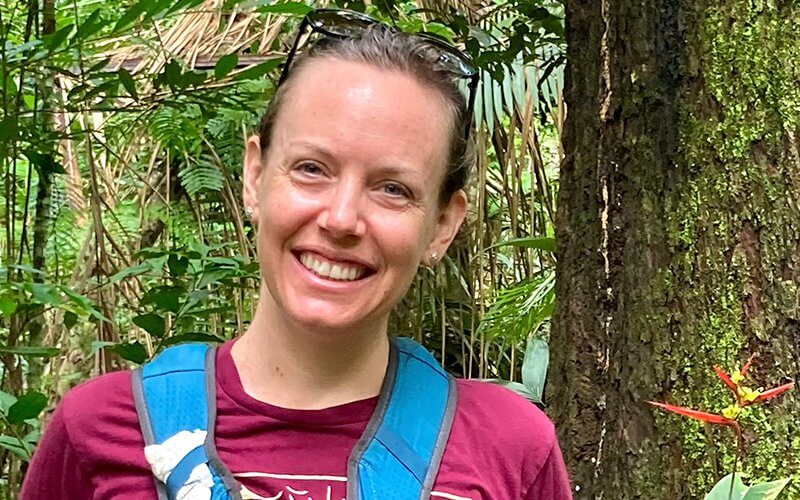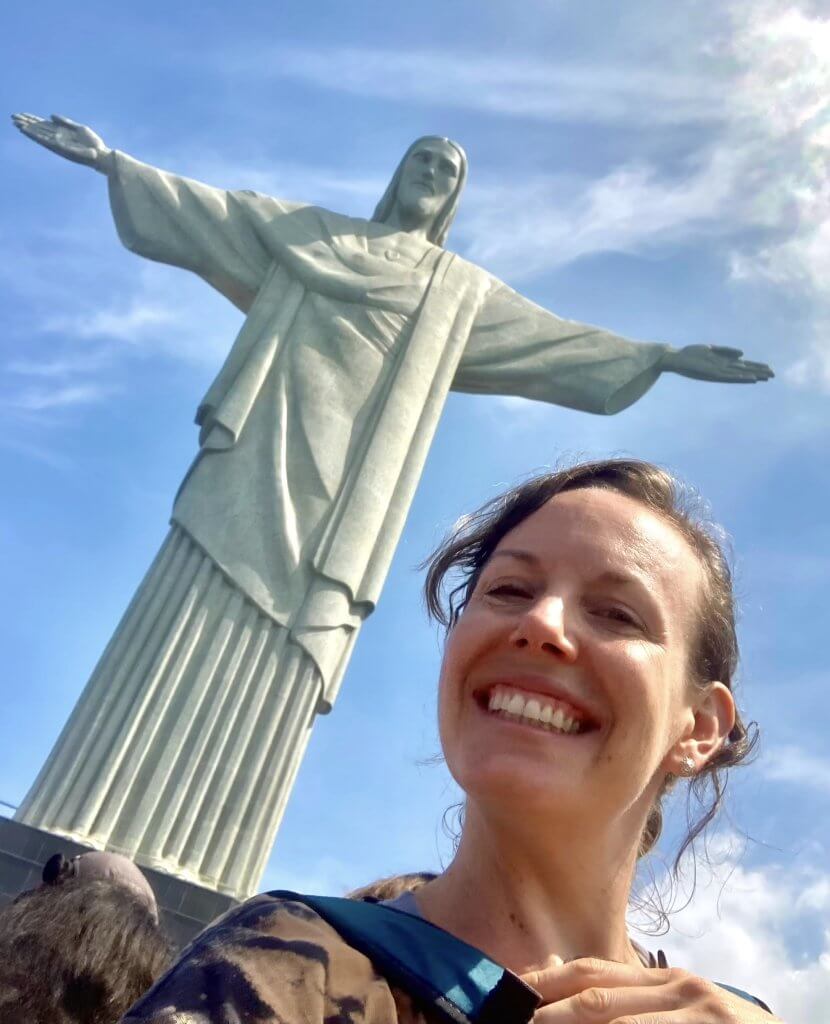
Mathematics educator Alison Marzocchi spent four months in Brazil earlier this year as a Fulbright Scholar to continue her research on improving faculty instruction through equity-minded and active mathematics teaching practices.
Marzocchi was hosted by the Mathematics Department at Universidade de São Paulo and connected with archaeology, botany, economics and statistics faculty to also learn from their experiences.
“The Brazilian scholars I met are also seeking solutions on how to best support students in their pursuit of higher education,” said Marzocchi, who holds a doctorate in mathematics education.
Marzocchi shared that access to higher education in Brazil has recently expanded, yet the country faces similar issues as the U.S. regarding graduating university students.
“In both countries, there is much room for improvement in degree completion rates among students from population groups that have historically been excluded from higher education,” she said.
“We need to work toward a point where a student’s demographic characteristic, such as parent income, race, ethnicity or gender, does not predict their likelihood to complete a degree. Every student should be given a fair chance to set a goal and earn a degree.”
Marzocchi’s “META: Mathematics Equity through Teaching Actively” research project addresses longstanding issues of opportunity gaps in mathematics. META is funded by a nearly $300,000 grant from the National Science Foundation, co-led by CSUF mathematics colleagues Kristin Kurianski, Roberto Soto and Amelia Stone-Johnstone.
The project aims to support math faculty in gradually improving their instruction by participating in immersive professional development and reflecting on their instruction in supportive learning communities.

Working in another country gave Marzocchi a different perspective on her teaching and, through her research, to find equitable solutions for degree completion from an international lens.
“Travel plays an important role in expanding your worldview. My beliefs are much different now from how I was raised, and I attribute much of this to the opportunities I’ve had to travel the world, including to Brazil,” she said.
“I try to share perspectives from around the world with my students so they know there are different ways of seeing and understanding what is around us.”
While in Brazil from January through April, Marzocchi practiced having a work-life balance and creating healthier boundaries like making time for exercise, recreation, socializing and healthy eating.
“This was a notable aspect of Brazilian culture that is rare in the U.S. I’m hoping to continue these healthy habits here,” she said.
Just as important as her research, Marzocchi immersed herself in Brazilian life, even learning to speak Portuguese. She lived in São Paulo and visited the country’s noteworthy places, including the Amazon rainforest, Rio de Janeiro, Iguaçu Falls, beaches, and attended a sold-out futebol (soccer) game.
“From a cultural ambassador aspect, I felt that part of my role as a Fulbright Scholar was to put myself out there, converse with as many Brazilians as possible, make friends, share my American culture and partake in Brazilian culture,” she said.
“The Brazilians I met were welcoming, friendly, supportive and generous. The culture felt upbeat and vibrant — emphasizing enjoying life and prioritizing community.”
The Fulbright U.S. Scholar Program allows U.S. citizens to teach, conduct research and carry out professional projects around the world.
Forty-six Cal State Fullerton faculty members have been honored as Fulbright Scholars since 1980-81, traveling to countries and gaining enhanced skills, new connections and greater mutual understanding.